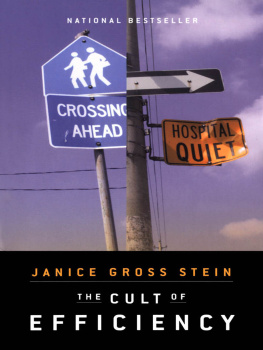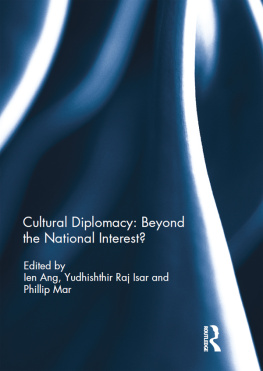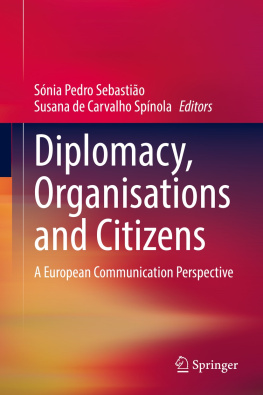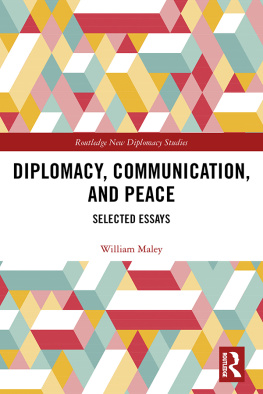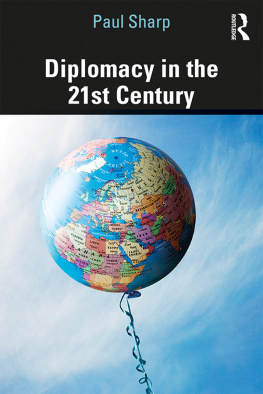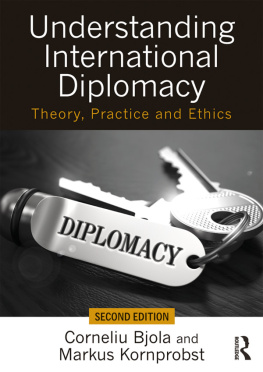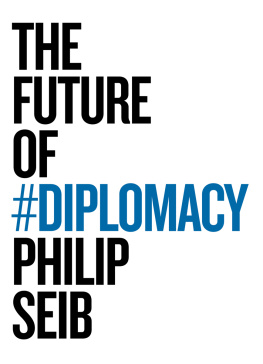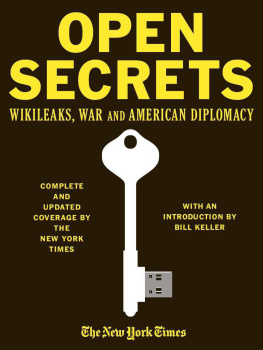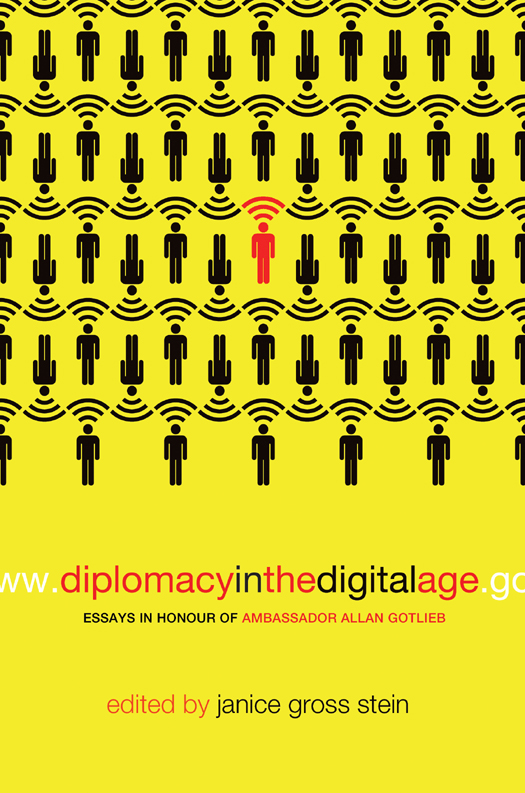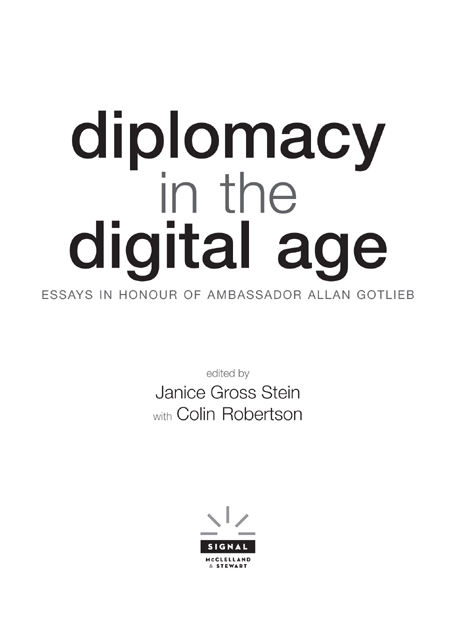Copyright 2011 by McClelland & Stewart
Signal is an imprint of McClelland & Stewart Ltd.
Signal and colophon are registered trademarks of McClelland & Stewart Ltd.
All rights reserved. The use of any part of this publication reproduced, transmitted in any form or by any means, electronic, mechanical, photocopying, recording, or otherwise, or stored in a retrieval system, without the prior written consent of the publisher or, in case of photocopying or other reprographic copying, a licence from the Canadian Copyright Licensing Agency is an infringement of the copyright law.
Library and Archives Canada Cataloguing in Publication
Diplomacy in the digital age / edited by Janice Gross Stein.
eISBN: 978-0-7710-8140-8
1. DiplomacyTechnological innovations. 2. Social media Political aspects. 3. Technology and international relations.
I. Stein, Janice
JZ1405.D56 2011 327.20285675 C2011-902106-4
We acknowledge the financial support of the Government of Canada through the Book Publishing Industry Development Program and that of the Government of Ontario through the Ontario Media Development Corporations Ontario Book Initiative. We further acknowledge the support of the Canada Council for the Arts and the Ontario Arts Council for our publishing program.
Library of Congress Control Number: 2011931424
Diplomacy in the Digital Age Janice Gross Stein; Allan Gotlieb: A Mind in Action Robert Bothwell; Observations of a Saloon Keepers Spouse Sondra Gotlieb; Public Diplomacy Marc Lortie; Changing Conditions and Actors, But the Game Remains the Same: Revisiting Gotliebs New Diplomacy Colin Robertson; Defying Gravity: Canadas Search for Counterweights to the United States Brian Bow; Canada, the U.S., North America, and the World Jeremy Kinsman; New Friends in the Digital Age David Malone; Where is Headquarters?: Diplomacy, Development, and Defence Elissa Golberg and Michael Kaduck; A Canadian Department of Global Affairs? Kim Richard Nossal; Remaking the Department of Foreign Affairs and International Trade Drew Fagan; The National Interest Edward Greenspon; Professionals and Amateurs in the Diplomacy of the Age of the Information Denis Stairs; Corporate Diplomacy in the Information Age: Catching Up to the Dispersal of Power George Haynal; Of Satraps and Supplicants: The Diplomatic Diary as the Last Safe Haven; Andrew Cohen; The New New Diplomacy: Open Diplomacy and Open Policy Development Arif Lalani; Digital Diplomacy William Thorsell
McClelland & Stewart Ltd.
75 Sherbourne Street
Toronto, Ontario
M5A 2P9
www.mcclelland.com
v3.1
CONTENTS
introduction
Diplomacy in the Digital Age Janice Gross Stein
Allan Gotlieb: A Mind in Action
Robert Bothwell
Observations of a Saloon Keepers Spouse
Sondra Gotlieb
Public Diplomacy
Marc Lortie
Changing Conditions and Actors, But the Game Remains the Same: Revisiting Gotliebs New Diplomacy
Colin Robertson
Defying Gravity: Canadas Search for Counterweights to the United States
Brian Bow
Canada, the U.S., North America, and the World
Jeremy Kinsman
New Friends in the Digital Age
David Malone
Where is Headquarters?: Diplomacy, Development, and Defence
Elissa Golberg and Michael Kaduck
A Canadian Department of Global Affairs?
Kim Richard Nossal
Remaking the Department of Foreign Affairs and International Trade
Drew Fagan
The National Interest
Edward Greenspon
Professionals and Amateurs in the Diplomacy of the Age of Information
Denis Stairs
Corporate Diplomacy in the Information Age: Catching Up to the Dispersal of Power
George Haynal
Of Satraps and Supplicants: The Diplomatic Diary as the Last Safe Haven
Andrew Cohen
The New New Diplomacy: Open Diplomacy and Open Policy Developent
Arif Lalani
Digital Diplomacy
William Thorsell
INTRODUCTION
DIPLOMACY IN THE DIGITAL AGE
Janice Gross Stein
Diplomacy functions best where it appraises and advises power, and does not attempt to substitute itself for the very real world of politics.
ROBERT BOTHWELL
Like authority, sin, Christmas, and winter, secrecy isnt what it used to be. Secrecy has lost its sanctity.
ANDREW COHEN
The diplomatic pouch has been torn asunder by the digital age, which is characterized by immediacy, transparency, profligacy, and universality. In the digital age building on the industrial age we move from the some to the many, from the stately to the frenetic, from command to influence, from deception to candour, and from interests to issues.
WILLIAM THORSELL
Open diplomacy and open policy development building vast global networks to harness ideas and nurture support everywhere, all the time are the hallmarks of modern diplomacy.
ARIF LALANI
A remarkable group of scholars, essayists, and practitioners have come together in this volume to celebrate Allan Gotliebs revolutionary contribution to the theory and practice of diplomacy in the last three decades of the twentieth century. They have come together to celebrate an outstanding intellect as well as a brilliant practitioner, a man who thinks lucidly and writes elegantly about diplomacy.
The contributors to this volume are also interested, as is Allan Gotlieb, in thinking forward about the future of diplomacy at yet another moment of significant change. Diplomacy is now being practised in the digital age. What does it mean to be a diplomat in a digitized world? What does a diplomat do differently in an age in which the information cycle spins continuously and hundreds of millions of people provide up-to-date information and engage in discussion through interactive social media? We asked our contributors to look back at Allan Gotliebs seminal contribution in order to better understand the future.
This volume went to press in the aftermath of WikiLeaks and the beginning of the Arab Spring. WikiLeaks stunned the diplomatic community when it made public some of the more than a quarter million cables that it now has in its possession. Professionals worried actively about compromising sources, the threat to confidentiality, and the likely refusal of people to confide in diplomats now that there was no assurance that their identity would be protected. Secrecy, as Andrew Cohen puts it in his chapter, has lost its sanctity. How, diplomats worried, can they do their jobs, communicate confidential and valuable information, protect their sources, and provide the kind of analysis their governments need?
The public reaction to the leaked cables was quite different. Diplomats, people said with some surprise, are smart. I didnt get much new information, one well-informed journalist told me, his voice tinged with envy and some uncertainty, but, my God, diplomats write well. Seasoned observers were certainly titillated by the occasional surprising morsel of gossip and entertained by some of the fripperies. Overwhelmingly, however, they were engaged and impressed by the analyses that they read. Even within the skeptical and occasionally snooty academy, colleagues grudgingly acknowledged that these diplomats really do provide thoughtful and incisive analyses. Diplomats, in short, are not valuable because of the information they provide, but because of their authoritative knowledge and the quality of their analyses. Especially in a digital age awash in information, indeed drowning in information, knowledge and elegant analysis matter. They may matter even more than they did in the age of print, where editors traditionally assured the quality of what people read.


